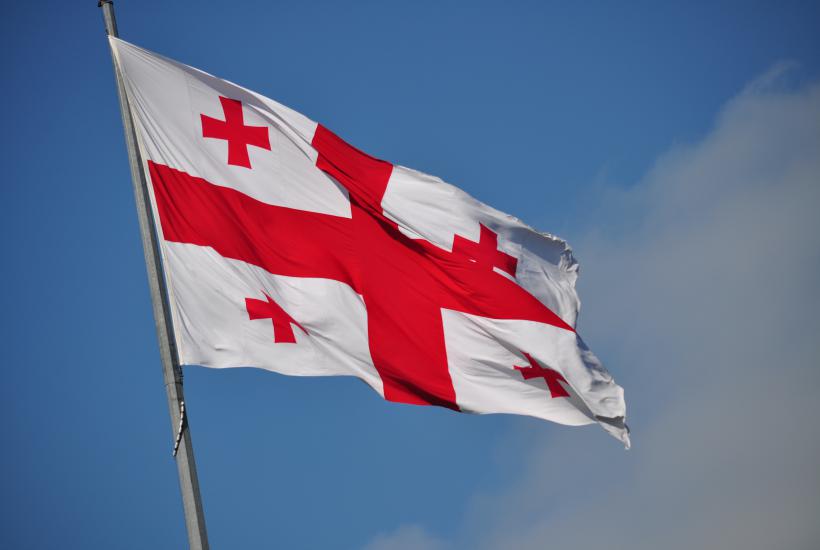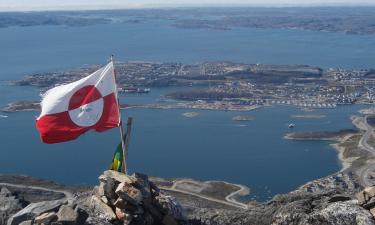Georgia protests: Ukraine scenario put to practice again
A new wave of unrest swept through the Georgian capital of Tbilisi on November 29 when anti-government protesters clashed with law enforcement officers. More than 30 police officers were injured in the clashes, at least 40 activists were detained. The Georgian Parliament declared a red alert level meaning that only members of parliamentary factions were allowed into the building.

Anti-government protests sparked in Tbilisi after the parliamentary elections on October 28. The protests escalated on November 28 overnight when more than a hundred demonstrators with EU flags gathered near the central office of the ruling party Georgian Dream — Democratic Georgia, and then moved to the parliament building on Rustaveli Avenue.
Mass protests were reported in other major cities of the country — Kutaisi and Batumi.
The protesters erected barricades in the center of Tbilisi, burned garbage cans and car tires.
According to the Georgian Interior Ministry, more than 30 law enforcement officers were injured during the unrest. Some of the officers suffered serious head, eye and body injuries. Thirteen of them required surgery.
The Georgian Interior Ministry sent groups of special forces to the parliament building. Water cannons and tear gas were used to disperse the demonstrators. Reportedly, the police also used pepper spray and dangerous chemical irritants.
The protests began in Georgia after the Georgian authorities decided to suspend negotiations on joining the EU until 2028. In addition, the government also refused all budget grants from the European Union for the next four years.
Georgian Prime Minister Irakli Kobakhidze called EU membership negotiations a tool of blackmail by Brussels. According to him, Tbilisi did not want to view European integration as a favor. Georgia needs to prepare economic grounds for more equal negotiations with the European Union, the official said.
As a result of the October 28 parliamentary elections in Georgia, the ruling party was able to retain an absolute majority in parliament, but the opposition refused to recognize the results of the vote and considered them falsified.
The Georgian parliament started working without the participation of opposition parties.
Protests resumed in the evening of November 29. Hundreds of students blocked Rustaveli Avenue - the street where the Parliament of Georgia is located.
A solidarity rally is also taking place in Tbilisi in support of journalists who were injured during the protests the day before. At least 20 reporters were injured in violent clashes with the police. One of the journalists was kicked in the stomach on live television, another one was hospitalized with fractures of facial bones and cervical vertebra.
Maidan riots brewing in Georgia
The ruling Georgian Dream party that won the parliamentary elections in the country on October 28 can prevent the opposition from organizing the so-called Maidan riots similar to those that too place years ago in Ukraine, Russian MP Dmitry Belik said in an interview with First Sevastopol.
"We all understand very well that it is Western countries that mastermind such revolutions. The EU at first recognized the results of the parliamentary elections in Georgia and said that there were no major violations. Today, however, the European Union demands that the results be reviewed and new elections be held. By and large, this is an attempt to destabilize the situation from within," the official said.
The protesters need bloodshed and victims for the riots to develop further.
"The Georgian authorities today profess the right policy — they cooperate with Russia, Azerbaijan, Turkey, and other countries that make this cooperation profitable. They work where it is profitable in the interests of Georgian citizens. The people of Georgia voted for such policy in the parliamentary elections," the MP said.
Those who are trying to destabilize the situation in the country do not care about the interests of the people of Georgia. They can only care less about the future of the country after the protests too, State Duma deputy Dmitry Belik believes.
Details
Tbilisi is the capital and largest city of Georgia, lying on the banks of the Kura River with around 1.2 million inhabitants, which is about a third of the country's population. Tbilisi was founded in the fifth century AD by Vakhtang I of Iberia. Since then, the city has served as the capital of various Georgian kingdoms and republics. Between 1801 and 1917, then part of the Russian Empire, Tiflis was the seat of the Caucasus Viceroyalty, governing both the northern and the southern parts of the Caucasus. Because of its location at the crossroads between Europe and Asia, and its proximity to the lucrative Silk Road, throughout history, Tbilisi has been a point of contention among various global powers. To this day, the city's location ensures its position as an important transit route for energy and trade projects. Tbilisi's history is reflected in its architecture, which is a mix of medieval, neoclassical, Beaux Arts, Art Nouveau, Stalinist, and Modern structures.
Subscribe to Pravda.Ru Telegram channel, Facebook, RSS!





